Long before he became the most successful manager in Liverpool’s history, Bob Paisley was a diminutive left-half who served as a key part in their post-war glory.
Utter the name Bob Paisley and immediately images of European Cups dance before your mind’s eye. You are instantly lost in reverie about days of glory when a succession of league titles was won, and Liverpool had indeed conquered the bloody world.
Bob is rightly lauded by all in football as one of the game’s greatest managers. However, what is often hidden from view is the contribution to the club’s illustrious history made by Paisley the player.
Long before he managed the club to unparalleled success, Bob Paisley was a footballer of great distinction, with a hunger for trophies that began in primary school. He would go on to win a league title at Anfield and scored a goal against Everton that helped secure a place in the 1950 FA Cup final. This is his story.
On January 23, 1919, in a tiny mining village call Hetton-Le-Hole in County Durham, Sam and Emily Paisley welcomed into the world their second son, Robert.
The boy who grew up to be a footballing legend had been born into a volatile world. World War I was over and the men who had endured so much on the battlefields of Europe were determined to ensure there would be no continuation of the horror.

In Folkestone and across the UK, soldiers mutinied in protest at plans to extend their deployments. The Anglo Irish War was about to erupt and across the country mine workers, joined by engineers and others, were striking for a 40-hour week.
Bob’s father was a miner and the family would experience great hardship during the young boy’s formative years, often relying on soup kitchens to keep themselves fed. In 1926, life would get even tougher during the General Strike. With pay steadily cut and hours lengthened in the post-war years, some 1.7 million workers went on strike for nine days in May, in an unsuccessful attempt to force the government to act on living conditions.
Sam Paisley’s lad would soon realise that his only escape from a lifetime of digging coal and fighting for survival lay in football, something he described as a religion. And the young boy would soon make a reputation for himself, playing as a left-half for Eppleton Primary School.
To say that Bob and his team-mates were prolific is something of an understatement: they would amass 17 trophies in a period of just four years. By now the die had been cast, and although he would join his father down the pit at the age of 13 before later training as a bricklayer when the mine closed (learning skills he would eventually put to use while building the dugout at Anfield), Paisley was destined to be a professional footballer.
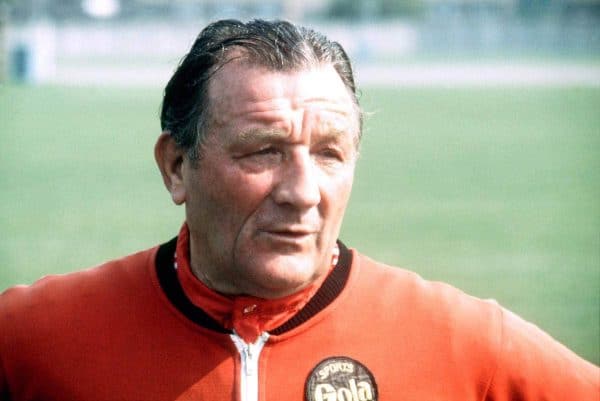
Sunderland were his local team, and Bob had dreamed of lining up for his heroes in the English First Division. However, they rejected him at the time, believing he was “too small.” He joined Bishop Auckland instead.
This was amateur football, but the Bishops, as they were known, had a fearsome reputation. During his second season at the club, they won their league, the FA Amateur Cup and the Durham County Challenge Cup. Success was already becoming the minimum acceptable standard for Paisley, who was now just 20 years of age.
His performances had now attracted the interests of Liverpool manager George Kay, who convinced the youngster to come to Anfield, and despite an approach from his boyhood club Sunderland, who appear to have seen the error of their ways, Bob would keep his promise to join the Reds.
So, in the May of 1939, Bob took the train to Liverpool.
He would be met at Lime Street station by board member and former player Andrew McGuigan, and the pair would travel by tram to Anfield. There, Bob would team up with none other than Billy Liddell. Liverpool would pay him a £25 signing-on fee and £8 a week during the season and £6 in the summer.
Given his decades-long contribution and the deluge of trophies that followed his eventual appointment as manager, that has to be the best value-for-money signing in the history of the club.
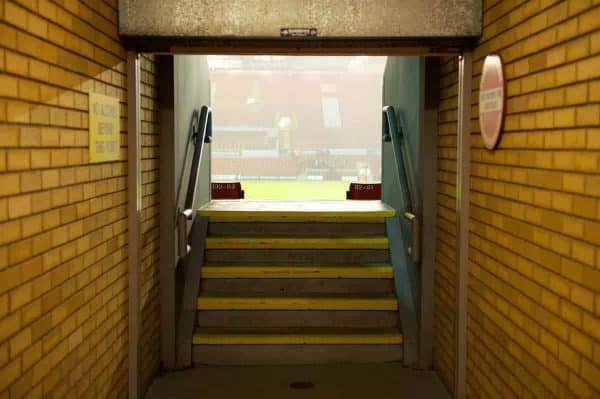
Bob would make a couple of reserve team appearances before World War II would ultimately put his burgeoning football career on hold. With many of the first-team squad already serving in the territorial army, Bob would soon be called up to the Royal Artillery Regiment, where he served as a gunner. Stationed initially in Rhyl, just 30 miles from Anfield, Bob was given permission to play for the Reds in a match against Everton in 1940.
The two sides were contesting the Liverpool Senior Cup in front of a crowd of 30,000, a game the Blues would win 4-2. However, far more remarkable was Paisley’s journey to the game. He would cycle 30 miles, before ditching his bike in Birkenhead and hitch-hiking through the Mersey Tunnel. He would repeat the feat after the game.
Bob was clearly a remarkable character, whose love for the game was beyond question even in 1940.
In all Paisley played 60 games during wartime, scoring 12 times. Eventually, in 1941, he was deployed overseas and would see active service in Africa, later taking part in the liberation of Rome. All this meant that despite joining the club in 1939, he and Liverpool would wait seven years for him to make his full debut for the club.
That day would come on January 5, 1946. The Football League would not resume in full until August 1946, but the FA Cup returned earlier. The Reds entered the competition at the third-round stage and Bob made his debut alongside eight others, against Chester at Sealand Road in front of 12,000 people.
Liverpool won the game 2-0, thanks to goals from fellow debutant Liddell and Willie Fagan. Sadly, in what would become a recurring theme for Paisley as both player and manager, he would taste eventual defeat in the competition, going out 5-2 on aggregate to Bolton Wanderers.
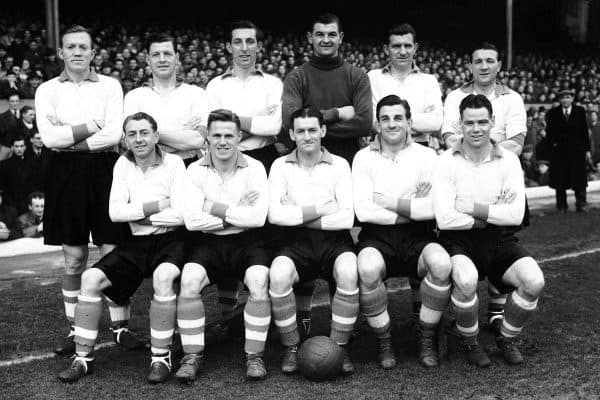
Paisley’s league debut arrived in a game of epic proportions against Chelsea at Anfield, on September 7, 1946. On a balmy summer’s day, a crowd of 50,000 watched in awe as the sides fought relentlessly for 90 minutes, with the Reds the eventual winners by seven goals to four. Liverpool were 6-0 up after 50 minutes, when the defence collapsed to a second-half onslaught from the visitors. With a full 18 minutes left, the Londoners had pulled the game back to 6-4.
However, the home side, driven on by a particularly raucous Kop end, and Willie Fagan grabbed their seventh to quell nerves and restore pride in the 87th minute. The Liverpool Echo was exultant. Under a banner headline that read ‘Red Sails in Chelsea Sunset’, the paper declared “Liddell and Paisley transformed Liverpool’s attack.”
Bob’s contribution wasn’t going unnoticed by fellow professionals. A quote from Spurs legend Danny Blanchflower, cited on lfchistory.net, gives an indication of the lethal partnership forged by Liddell and Paisley in that first season after the war. He would say:
“My first match at Anfield was at right-back for Aston Villa. The roar from the Kop was awesome as Billy Liddell waltzed down the wing making us look like idiots. Then I began to recognize the source of Liddell’s magic. He was Liverpool’s inconspicuous craftsman at left-half, Bob Paisley.”
Liverpool would go on to lift the league title in 1947, and Paisley would play 39 of Liverpool’s 48 games in all competitions. He was an integral cog in George Kay’s machine that outfought and out-thought all before them. Clearly a player of some guile and skill, Bob could also mix it up when necessary. He would later describe his style as aggressive, but claimed that came from a love of the game and not from any malice.
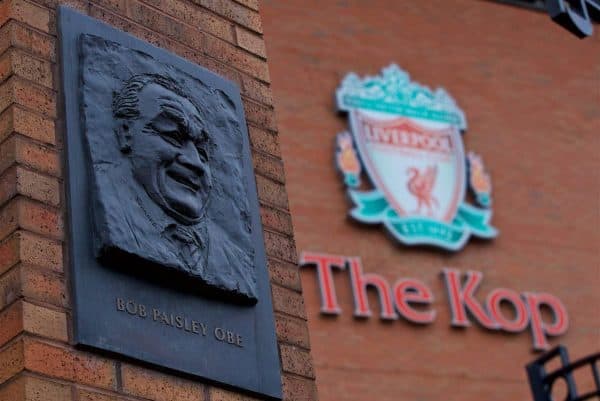
Paisley was once so determined to play that after being rendered unconscious 10 minutes before half-time, in a game against Newcastle in 1948, that he returned to the pitch nine minutes into the second half. He would even leap to head a Liddell cross goalward before collapsing unconscious once again, much to the horror of his father, who later told him off in the strongest possible terms for playing on.
This tough, no-nonsense, never-say-die attitude of the young Bob Paisley may seem out of keeping with his gentlemanly and modest demeanour as a manager. However, it should surprise none of us that the man who had fought on battlefields in Africa and Europe, and whose upbringing involved a fight for survival of a different kind, would take that ethos and attitude into any arena he was placed.
Bob Paisley was only in the game at all because of his relentless will to live and succeed. And, these were, of course, the qualities that saw him create the most successful Reds teams of all time.
After the glory of the 1947 title win, Paisley would taste bitter disappointment in 1950. The Reds reached an FA Cup final for the first time since 1914, and were set to face Arsenal. Bob had played a pivotal role in reaching Wembley, and had scored in a 2-0 victory over neighbours Everton in the semi-final at Maine Road on March 25, 1950.
Writing in the Evening Express, Don Kendall describes Bob’s goal:
“Bobby Paisley deserves great credit for the manner in which he chased Burnett’s punch away, and with the ball running away from him, contrived to hook it back with his left foot so that it dropped straight into the net with neither the arriving Liddell nor Burnett touching it.”
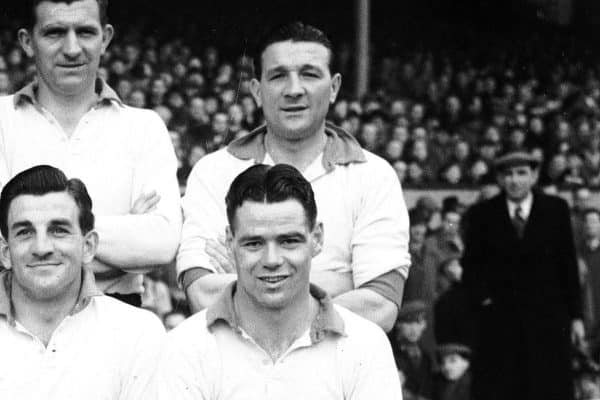
Bob, now 31, must have been elated and dreaming of a once-in-a-lifetime opportunity to compete for England’s premier cup. With his career winding down, he would have been acutely aware that he may not get another chance. That’s why it will have come as the bitterest of blows when he wasn’t selected for the final.
Team-mate Albert Stubbins paints a picture of a man distraught at the snub, and contemplating life away from Anfield. He would even have to talk Bob out of leaving:
“Bob was shattered to be left out. He was very low and contemplating leaving the club, but I told him not to make any hasty decisions.”
What a terrible loss to the club that would have been. Clearly, we all owe Subbins a huge debt of gratitude. Thankfully, Paisley got over his disappointment.
Arsenal won the cup, courtesy of a 2-0 victory, and by now Paisley was making plans for the day when he hung up his boots. Now a married man, he began training as a physiotherapist.
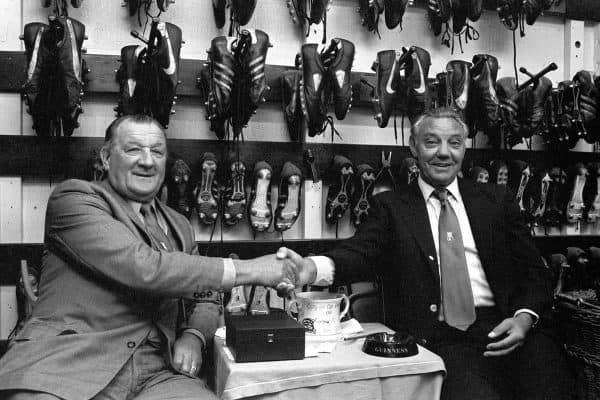
His last appearance came in a 3-1 defeat to Sheffield United on March 13, 1954. He was 35 years of age. In all, he had played 277 times for Liverpool – a figure that would have surely been higher but for the war – scoring 13 times and winning a league title.
For all of that, long before he ever dreamed of becoming Liverpool’s manager, Bob Paisley had already earned his title as one of the men who made Liverpool.
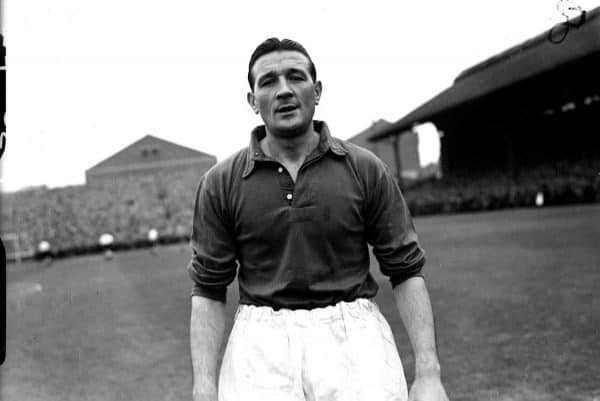





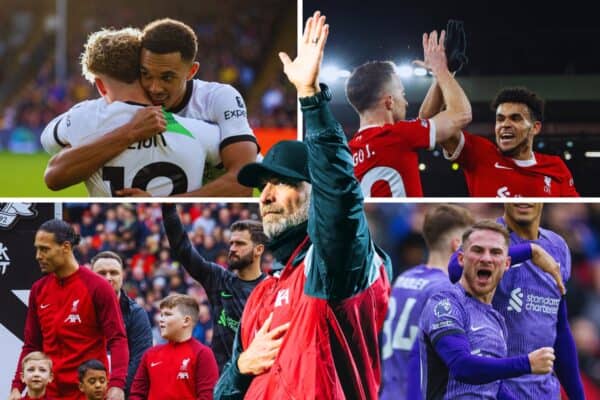

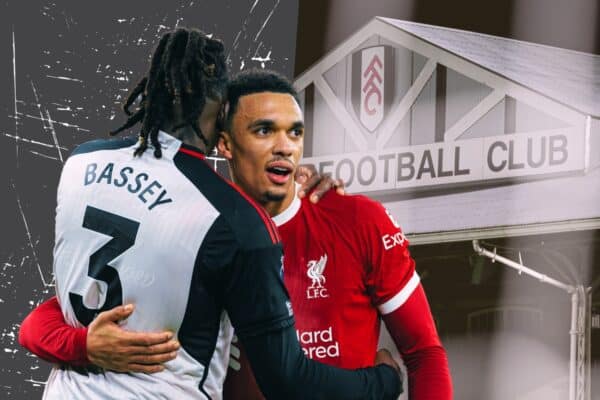
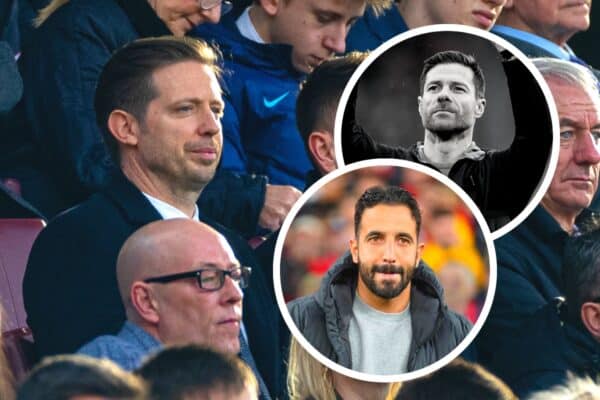
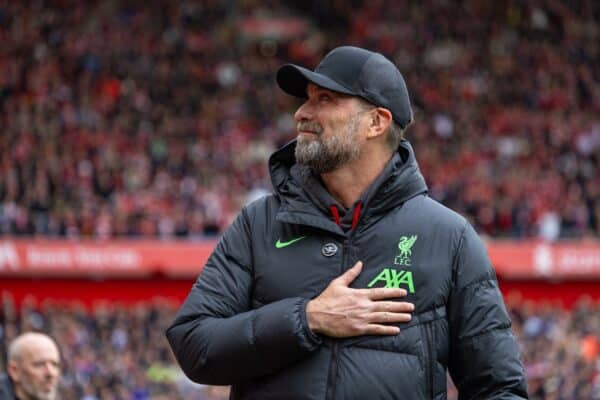
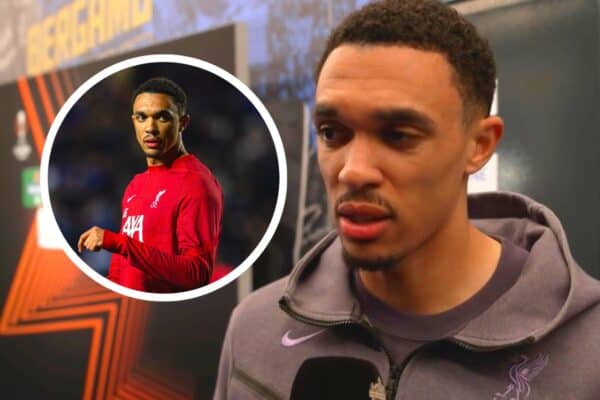
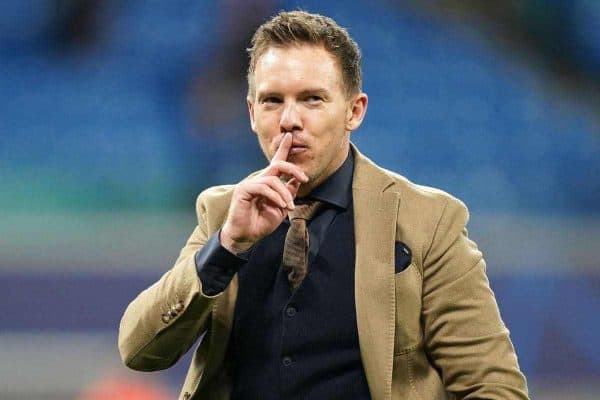
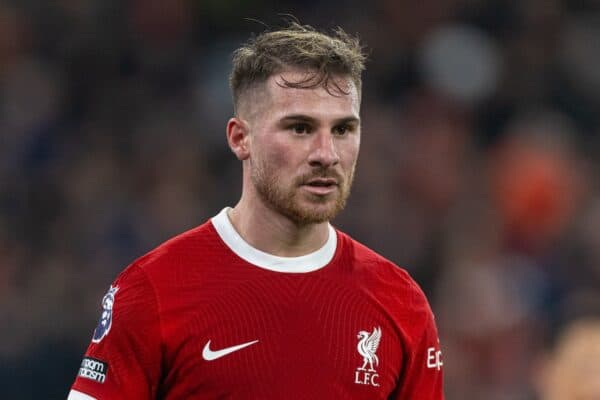

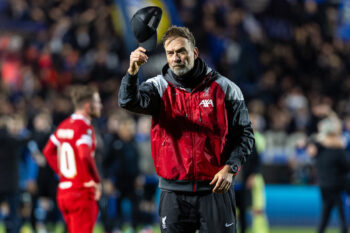
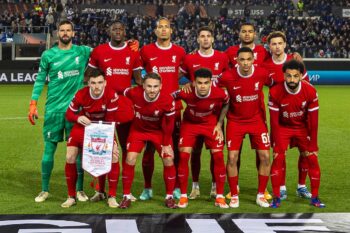
Fan Comments